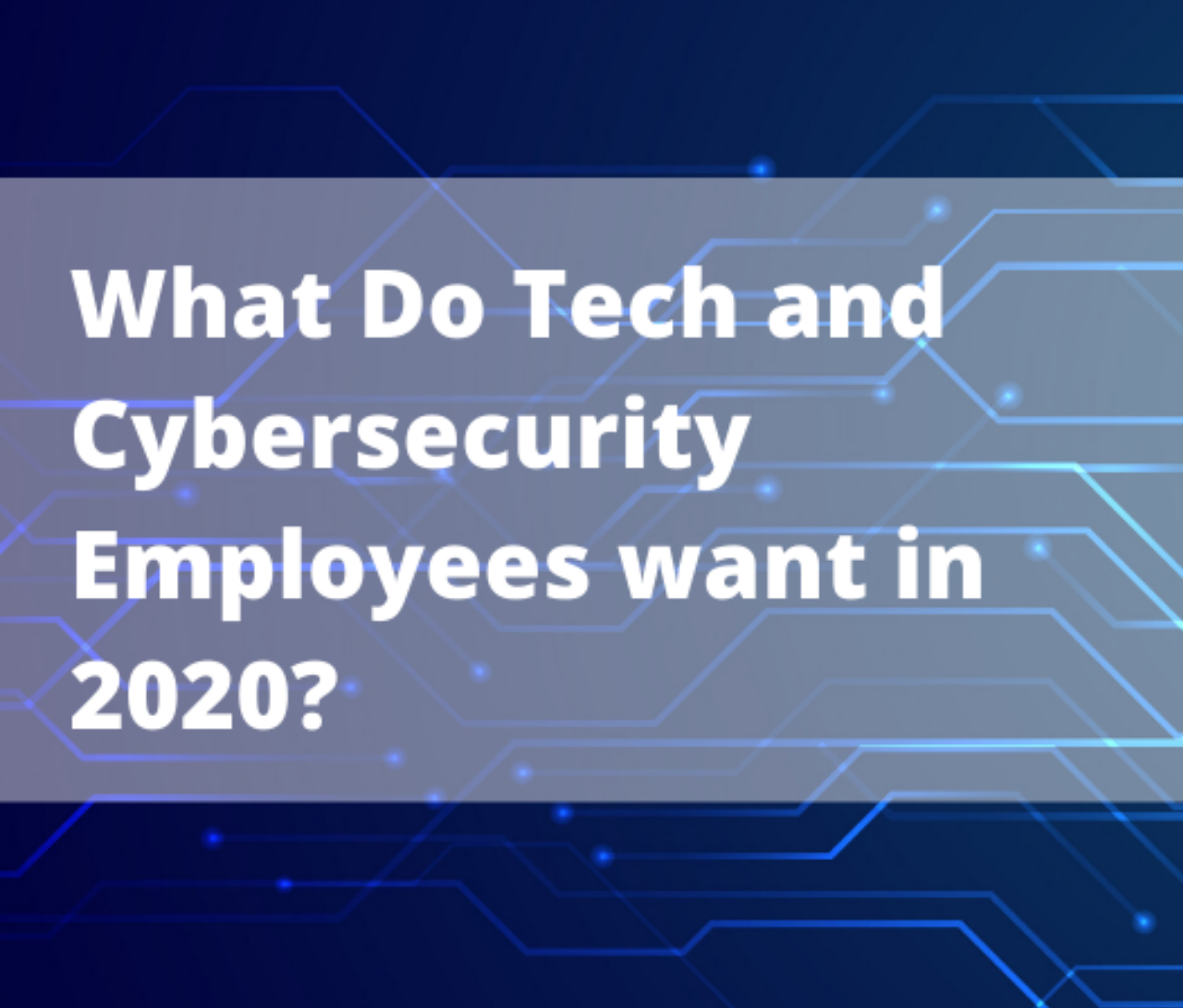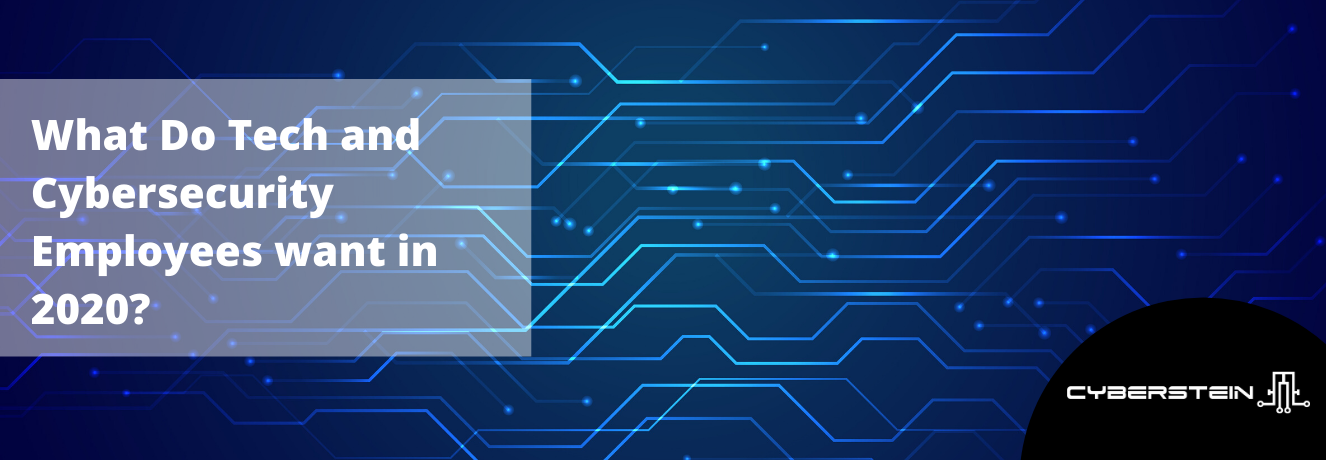
16 Dec Benefits Employees in Singapore’s Tech and Cybersecurity Industry Want in 2020

Despite having a flourishing tech ecosystem, some organizations are still finding it hard to attract tech talents. Singapore’s tech ecosystem has blossomed rapidly over the years, yet tech and cybersecurity talents are hard to find. Here are the 4 things that employees in Singapore’s tech and cybersecurity field want from their jobs in 2020.
1. Better salary and compensation

Interestingly, JobStreet’s research has found that female employees care more about salary than their male counterparts in the Computer and Information Technology (Software) sector.
It’s no secret that all candidates and job seekers in all industries consider salary and other financial bonuses. However, in Singapore’s Computer and Information Technology (Software) industry, Baby Boomer (55-64 years old) and Gen X (35-54 years old) employees are the ones with the highest salary expectations.
With a higher salary and better compensation put on such a high pedestal. It is up to smart HR executives to keep both compensation and salary packages appealing to job candidates and employees. The best way to avoid rejection from a tech talent is by offering a salary slightly higher than the market rate. That way, you’ll avoid wasting valuable time interviewing candidates only to be rejected at the point of offer.
2. Work-life balance

Cybersecurity is an industry that is notoriously known for its little to no work-life balance. However, cybersecurity professionals insist that this depends greatly according to the organization. Cybersecurity professionals typically work in shifts (especially those stationed in the SOC room). Many employees in the cybersecurity industry both dread and loathe the graveyard shift.
Research also shows that cybersecurity individuals in Singapore desire work-life balance from their next position (see image below). A poor work-life balance not only leads to extremely stressed individuals, but it also leads to burnout and fatigue. The allure of the cybersecurity industry is the ability to innovate as well as a large amount of learning opportunities. Employees might be tempted to decline your offer if you fail to communicate how much your organization values work-life balance.
One way job seekers try to figure out your organization’s working culture is by asking hiring managers specific questions about the company during the initial job interview.
Here are some questions HR professionals might encounter:
- What benefits does your organization have that are focused on “work-life” balance?
- Describe your organization’s work culture
- How does your organization measure success?
- What makes your company culture unique?
These are just some preliminary questions that job interviewers will ask to figure out if your organization values work-life balance.
3. Job security

No one wants to join an organization that cannot guarantee job security. Job security also refers to promotion opportunities – one of the key drivers for candidates in the Computer and Information Technology (Software).
Upskilling is also valued in this industry, and many cybersecurity and tech professionals look forward to joining organizations and companies that offer this. Humans are naturally inclined towards goals. Companies that provide upskilling as a form of incentive, it is likely that the staff involved will do what it takes to get to the set goal.
Another benefit of upskilling your employees is that you can train employees to have the relevant skills your organization needs or wants to have. Other unspoken benefits of upskilling your employees are making them feel like the company values their efforts as well as their developmental goals. This sense of gratitude could help you retain your employees, as they will try to avoid looking for greener pastures when they see themselves as a true asset to the organization.
Learn more about the multiple benefits of upskilling your employees in this article by Information Age.
4. Management and leadership style

Good managers create good employees. Compared to the past, managers these days are viewed as valuable pillars of the workforce. However, today, employees are not afraid to scrutinize bad managers. Some employees might take things further and leave their current workplace for another company with better managers.
Bad managers can affect the team in a number of ways. They include:
- Poorer work quality
- Lower team productivity
- Increase in absenteeism
- Increase in turnover rates
There are a number of different management styles out there ranging from authoritarian management to visionary management. What you choose to adopt is up to you. But there are some habits that bad managers often have in common.
The 5 habits of bad managers are:
- Bad managers micromanage: Micromanagement occurs when there is little trust between the manager and the employee. The detrimental effects of micromanagement include a decrease in morale and trust, which can lead to other problems.
- Bad managers don’t communicate well: They refuse to hear out employees when they’re voicing out their concerns, questions, and suggestions.
- Bad managers refuse to take the blame: Terrible managers refuse to understand that they’re the problem. These are the type of managers with a slew of excuses ready at their disposal. They blame employees and other departments instead of fixing the actual problems.
- Bad managers don’t let employees learn: They refuse to delegate the bulk of the interesting projects and tasks to their team. These are the managers that jump at every learning opportunity…for themselves.
- Bad managers quit: Bad managers are the ones who will quit instead of staying and fixing the root of the department’s problems. They leave when the organization tries to hold them accountable for their actions.
Learn more about the many traits of a terrible manager here.
What are other common benefits that employees in Singapore’s tech and cybersecurity field lookout for? Share them with us in the comments section below!
Outsource your cybersecurity headache to trained tech recruiters with A Very Normal Company. At A Very Normal Company, we offer the best manpower available to act as your first line of defense. Find out more about A Very Normal Company here. Or contact Victor at ([email protected])for more information on how outsourcing and recruiting temporary cybersecurity talents is a great option to consider when it comes to protecting your company, its resources, and reputation online.
Stay informed, follow A Very Normal Company on Linkedin for more news and updates on Cyber Security outsourcing and recruitment in Singapore.
Read More: Tips For HR Dummies: What’s The Difference Between AI And Machine Learning

